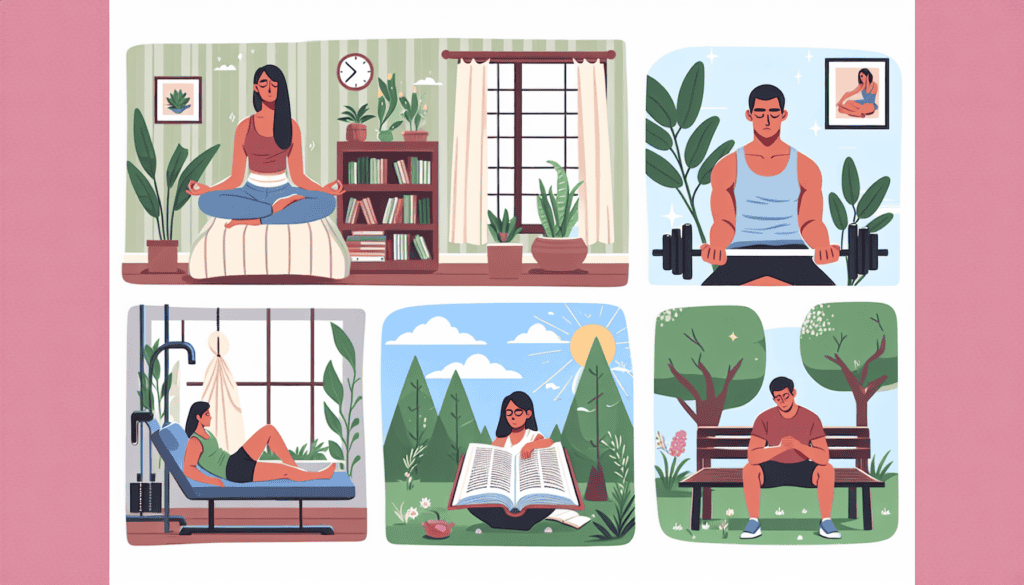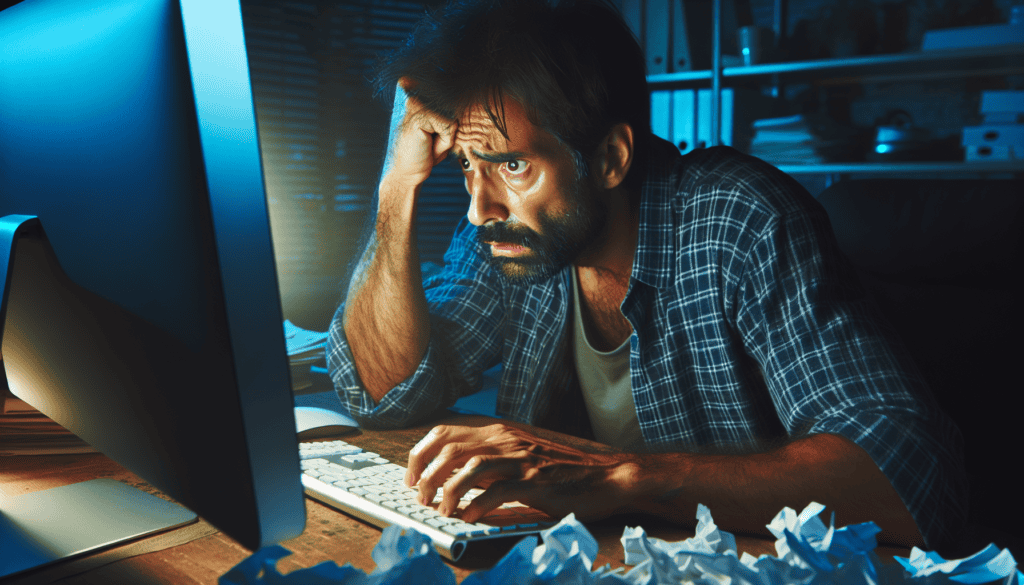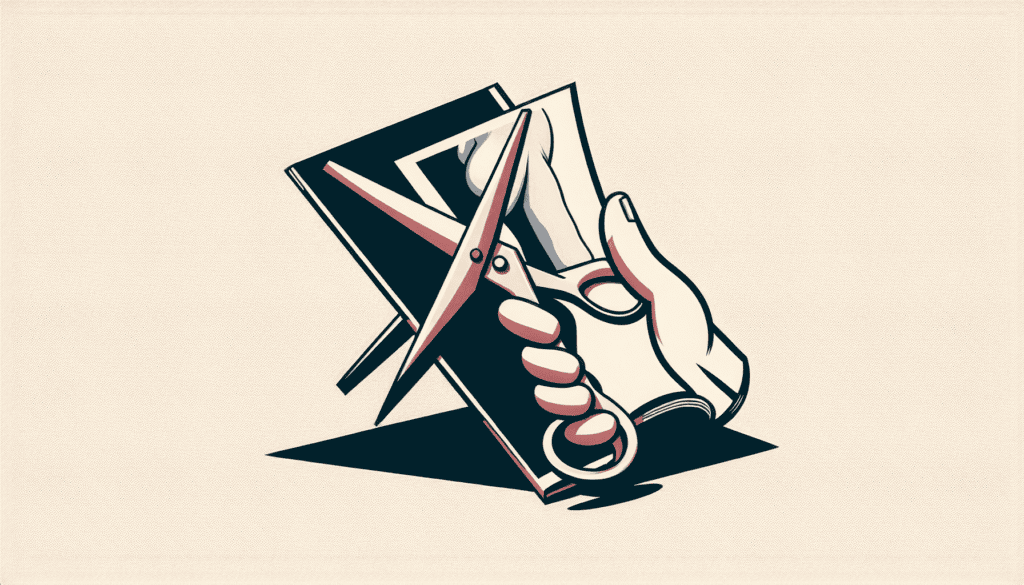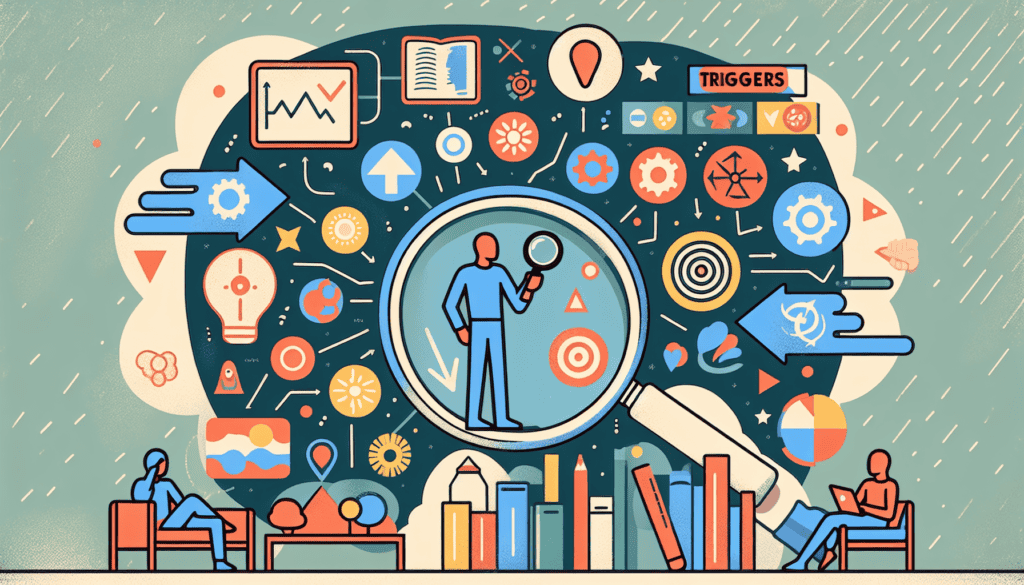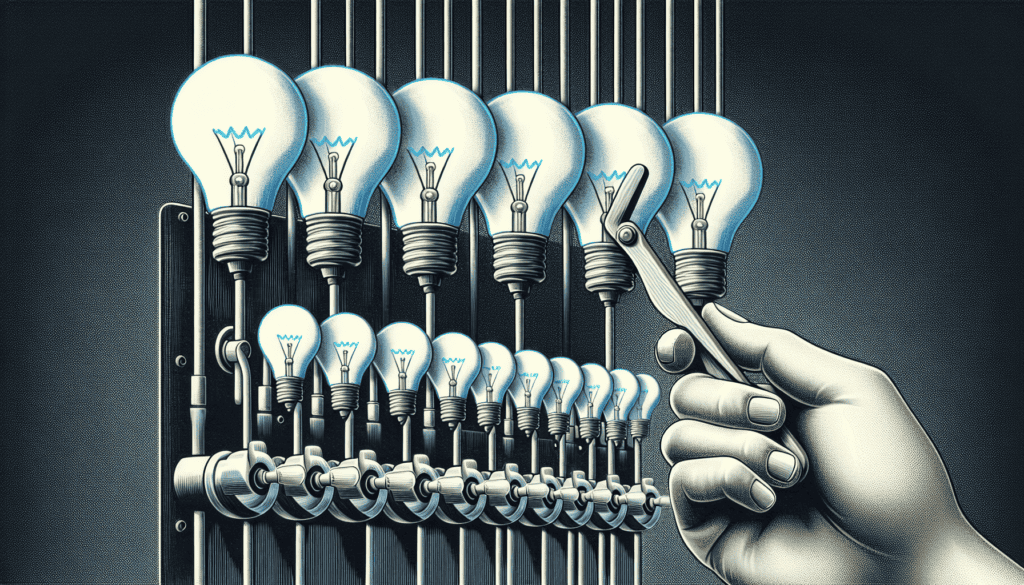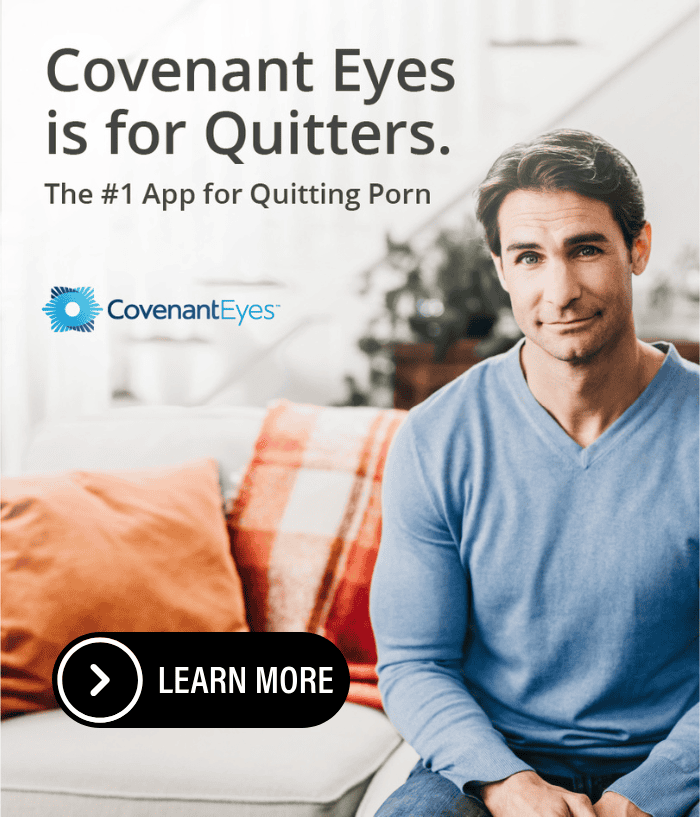Understanding Relapse in Addiction Recovery
Relapse is a familiar worry for folks struggling with addiction, including porn addiction. It’s vital to spot the early signs and know the difference between a slip and a full relapse to keep the recovery train chugging along smoothly.
Recognizing Relapse Warning Signs
Spotting the early signs of a potential relapse can be a game-changer in stopping a return to those old, troublesome habits. Here’s what to look out for:
| Warning Signs | Description |
|---|---|
| Strong cravings | A bursting desire to indulge in the old habit. |
| Changes in daily routine | Swerving from the usual routine, setting the stage for relapse. |
| Emotional upheaval | Feeling like the blues, jittery, or crabby. |
| Shunning support systems | Giving the cold shoulder to friends, family, or recovery groups. |
It’s really important to catch these signs early and act fast. Reaching out to a recovery buddy, therapist, or someone you trust can help keep the recovery process on track.
Think about why the slip happened and stick to your recovery goals to stop things from rolling into a full-blown relapse. Wanna know what to do after slipping up? Check out our article on i just relapsed does this mean that all progress is lost?.
Differentiating Between a Slip and a Relapse
Knowing the difference between a slip and a full-on relapse is like knowing the difference between a bump in the road and falling into a ditch.
A slip is like a little oopsie – an unplanned dip into the old behavior, like sneaking a peek at porn, which usually doesn’t last long. A relapse, though, is when someone kisses their recovery plan goodbye and dives back into their old habits.
| Term | Description |
|---|---|
| Slip | A quick, unplanned little tumble back into the old ways. |
| Relapse | Jumping off the recovery wagon completely and going back to square one. |
Addressing a slip right away is key because if left unchecked, it can turn into a full relapse. Both slips and relapses are parts of the ups and downs of recovery. Jumping back on the recovery plan right after a slip keeps the motivation alive and helps move towards healing. Curious about the differences? Skim through our article on slip-up vs. relapse: what’s the difference?.
Strategies for Relapse Prevention
Keeping on track with recovery from addiction, like porn addiction, can be like playing a tricky game of whack-a-mole. Just when you think you’ve got it, those pesky urges pop up again. But fear not, with the right tools, staying sober doesn’t have to feel like walking a tightrope. Let’s break it down.
Therapy and Skill Development
Therapy isn’t just lying on a couch spilling your beans; it’s about beefing up your mental toolkit. It’s a lifeline for folks battling addiction, providing some solid support and practical skills.
While there are all sorts of therapy options out there, some heavy hitters like cognitive-behavioral therapy (CBT), motivational interviewing, acceptance and commitment therapy, and contingency management stand out (NCBI Bookshelf).
These methods aim to make you aware of what gets those gears of addiction turning, help you handle life’s curveballs, and boost your belief in yourself. A big part of not slipping back is gaining the know-how to handle cravings and those sneaky triggers that might throw you off course (American Addiction Centers).
| Type of Therapy | What’s It About |
|---|---|
| Cognitive-Behavioral Therapy (CBT) | Spotting and flipping negative thought loops that mess with your mojo. |
| Motivational Interviewing | Rekindling that spark to wave goodbye to addiction by peeling back the ‘why’ of it all. |
| Acceptance and Commitment Therapy | Teaches you to roll with your thoughts and emotions, accepting them without flipping out, while staying true to what matters to you. |
| Contingency Management | Rewards you as you stick to the straight and narrow, think of it as getting gold stars for good behavior. |
The cheat code here? Develop a pocketful of responses to life’s challenges. The more you practice, the more confident you’ll be in dodging the tricks and traps that might lead to a relapse.
Medication Approaches
While chatting it out in therapy is invaluable, sometimes a little help from medication can smooth the bumps in the road. Some meds work like a safety net, easing the cravings and lowering the odds of stumbling back into old habits. Having a heart-to-heart with a doc about these options adds an extra arrow to your quiver in the fight against relapse.
Medications tend to be a game-changer for those who’ve battled relapses before or for whom resisting cravings feels like a never-ending uphill battle. So, find a plan that dances to your own tune because it’s all about what works best for you.
Importance of Monitoring
Keeping tabs on your progress isn’t just for nit-pickers. It helps zap any sneaky issues before they turn into full-blown obstacles. By checking in with yourself regularly, you can pick up on patterns or worry points early on.
After a relapse, getting expert advice might be your best bet, as it could mean your current game plan needs a few tweaks or maybe some playtime with a professional (American Addiction Centers).
Support from others is mighty powerful too. Joining a support group or swapping stories online keeps you accountable and extras like these might light the path of progress brighter. Having a backup strategy at the ready for when life throws a curveball can’t be overemphasized.
Continually revisiting and refreshing your coping tricks can make you a warrior against any kind of challenge. For an extra leg up, check out our article on how do you mentally prepare for potential relapses?.
By weaving these strategies into a recovery tapestry, facing the hurdles of addiction becomes a bit less daunting. Remember, equipping yourself with the right tools and support system molds you into someone who isn’t just surviving but thriving through the ups and downs.
Coping with Relapse and Setbacks
A relapse can feel like a real heartbreaker, especially when you’re battling porn addiction. But hang tight—reaching out for help and leaning on your social squad can make this rough road a lot smoother.
Seeking Professional Help
Okay, you’ve had a setback, and that’s a bummer. Now’s the time to think about grabbing some pro support. Sometimes you need an expert to tweak your recovery game plan or even jump back into a structured program. We’re talking options like detox, inpatient care, outpatient shenanigans, or getting down with behavioral therapies (American Addiction Centers).
| Type of Treatment | What It’s About |
|---|---|
| Detox | Let’s face it, withdrawal ain’t easy, but medical help’s got you covered. |
| Inpatient | Go full-immersive with a residential setup that covers all bases. |
| Outpatient | Stay in the game of life while getting the help you need. |
| Behavioral Therapy | Time to rewire those thoughts and stop bad patterns in their tracks. |
A sit-down with a pro can open up fresh insights and new tricks to dodge future relapses.
Utilizing Social Support
Social support ain’t just fluff—it’s your secret weapon in kicking addiction’s butt. With a solid support circle, you’re looking at emotional backup, accountability, and all the good stuff that makes recovery less of a solo mission. Studies have your back, showing that having your crew around boosts your odds of success way more than flying solo (Ikon Recovery Centers).
According to the folks at Substance Abuse and Mental Health Services Administration, recovering isn’t just a “you” thing—it’s a “we” thing. Your pals and family make a big difference. An accountability squad helps keep your eyes on the prize, and feeling good about social chats dials down anxiety, making cravings more manageable (Ikon Recovery Centers).
Having a trusty social net can open doors to useful stuff like job training, money advice, and finding a place to crash—all important when breaking free from old habits. When you’ve got reliable folks by your side, the road back to bad habits gets blocked with a nice mix of emotional and hands-on support—and, you’re set up to reach out to the pros if you need to.
Jumping into a supportive community makes the whole recovery thing way more doable, leading to lasting changes. So if you’re reaching out to fam, friends, or jumping into a group, you’re not just leaning on them; you’re finding your strength in the middle of the storm.
Dealing with Triggers and Stress
Kicking a porn habit is more than just deleting history; it’s about outsmarting the little gremlins that push your buttons and mastering the art of Zen. Recognizing what sets you off and how to chill out is kinda like having a Jedi mind trick against falling back.
Identifying Personal Triggers
We all got our kryptonites – those sneaky little things that make us feel weak. Pinpointing them is like finding your lost keys – crucial for getting back on track. Here are some usual suspects in the world of “oops, I did it again” moments:
| Trigger Type | Examples |
|---|---|
| Emotional States | Feeling anxious, sad, or just bored outta your mind |
| Situational Triggers | When you’re flying solo or stuck in awkward social gigs |
| Environmental Cues | That dodgy website, certain movies, or even that café with free Wi-Fi |
| Social Influences | Folks around you who think ‘recovery’ is just a word in the dictionary |
Once you snag what drives the itch, you can cook up ways to dodge or dance around those tricky situations. Check out what are the most common relapse triggers? if you’re itching for more insights and wanna personalize your comeback plan.
Managing Stress to Avoid Relapse
Stress is like a sneaky villain lurking in the shadows, ready to pounce and lead you astray. Chronic stress can light up cravings like a Christmas tree, tempting you back to old habits (Gateway Foundation). But never fear, ’cause these stress-busters are here:
- Mindfulness and Meditation: Think of mindfulness as a mental spa – it keeps the stress wolves at bay and your mood shining bright.
- Exercise: Sweat it out! Even a short walk can lift your spirits and keep the cravings on a tight leash.
- Social Support: Stick with the people who’ve got your back; nothing beats that warm, fuzzy feeling of not being alone (Gateway Foundation).
- Healthy Coping Mechanisms: Dive into a book, get artsy, or take up a new hobby. It’s fun minus the dark side.
Sometimes, getting a pro’s help is an extra ace up your sleeve to handle stress better, especially when the going gets tough. Knowing how to tackle stressful days can toughen you up against those sneaky temptations. For more life-hacks, take a look at how to prevent future relapses? and how to overcome relapse triggers?.
By eyeing out personal triggers and clutching onto solid stress-busting skills, folks can cook up a healthier ground for their fresh start.





